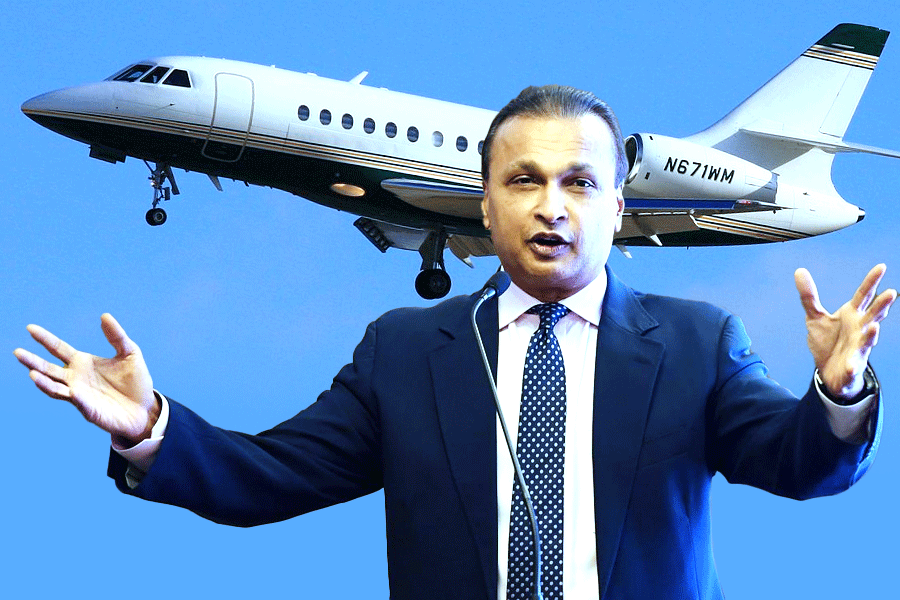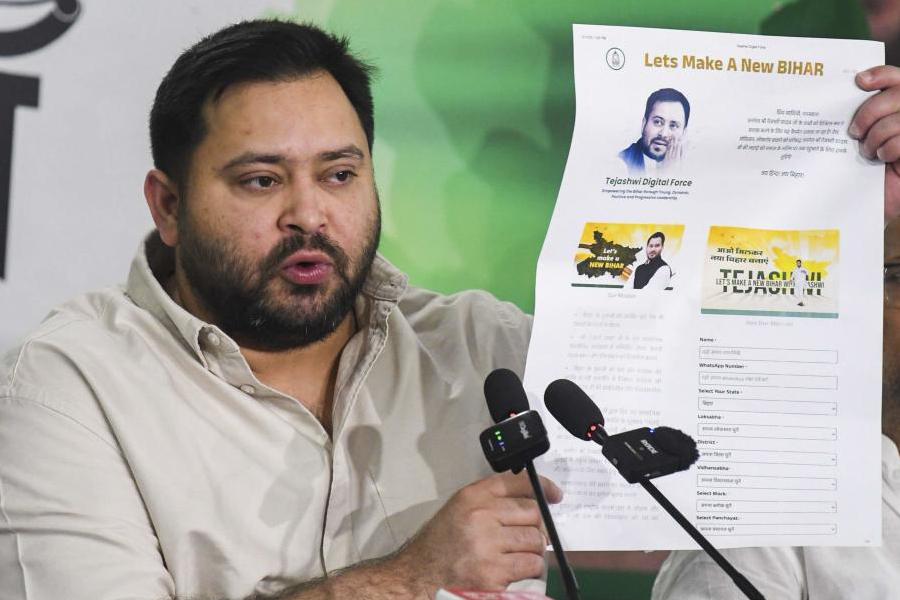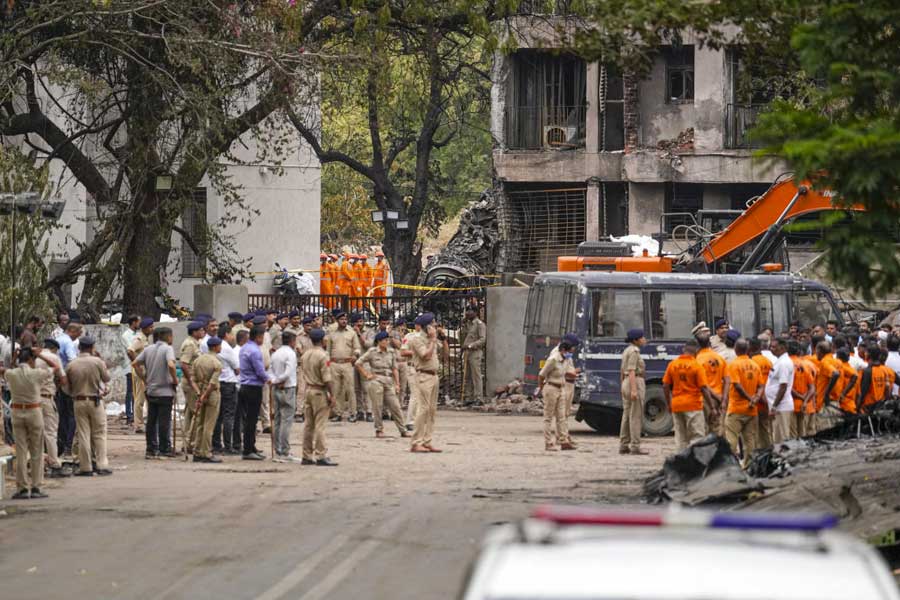Under a cloudy night sky, K.S. Venkatesh, a professor of electrical engineering at the Indian Institute of Technology, Kanpur, exhorted students and fellow faculty members to salute their fraternity elsewhere who had taken beatings for democracy.
Venkatesh has over two decades delivered more than a thousand lectures but never one that urged his audience to consider it a “duty” to back students and faculty at other academic institutions in confrontation with the central government.
Around 200 students and over 25 teachers had joined the meeting last month on IIT-Kanpur’s old convocation ground to express solidarity with those attacked at Jawaharlal Nehru University on January 5 and others elsewhere protesting against the new citizenship regime.
They are among faculty, scholars and students from over 80 science institutions across India who have signed petitions, organised marches and staged sit-ins over the past month to campaign against the Citizenship (Amendment) Act that they view as discriminatory, divisive and breaching principles enshrined in the Constitution.
For Indian scientists, the protests mark a sharp departure from a tradition of keeping away from issues related to governance. But their campaigns have clashed with institutional efforts to muzzle dissent and triggered speculation about the impacts of submission as well as the costs of defiance.
Yet, for many, the risks appear worth taking.
“The people protecting our democracy are the people in JNU. They’re taking beatings on our behalf,” Venkatesh told the assembled group. “We’re sitting here comfortably. Look what the people in JNU are taking — and (at) some other places too.”
Faculty members at IIT-Bombay, IIT-Dharwad, the Indian Institutes of Science Education and Research (IISERs) in Calcutta, Pune and Mohali, and the Tata Institute of Fundamental Research (TIFR), Mumbai, among other institutions, have received email or verbal nudges effectively asking them to stop expressing dissent.
Such efforts to suppress opposition, many scientists say, expose the government’s degree of intolerance.
“India’s science community has traditionally been apolitical, but is becoming increasingly vocal about its discomfort with the government’s divisive policies,” said Suvrat Raju, a physicist and faculty member at the International Centre for Theoretical Sciences, Bangalore, a TIFR unit. “The government’s efforts to stifle this opposition display intolerance to dissent.”
At IISER, Mohali, director J. Gowrishankar had circulated an email to faculty reminding them that they need to adhere to the Central Civil Service Rules of 1964 that prohibit government officials from making public statements critical of any government policy.
“My note was clear — IISER faculty need to follow the rules they’re expected to,” Gowrishankar told The Telegraph. “Those who want to criticise government policy should follow the example of the IAS officer who resigned — then do what they wish.”
Kannan Gopinathan, a 2012-batch IAS officer, had resigned in August 2019 opposing the Narendra Modi government’s actions in Jammu and Kashmir.
Some scientists point out that the government likely enjoys vast support for its actions from even within the scientific community. “It is possible that only the minority opinion is loud and vocal, while the vast majority of supporters are silent,” Gowrishankar said.
But others argue that the magnitude of support is often irrelevant on certain issues.
“Right or wrong is never determined by majority opinion — throughout history, there are examples that illustrate this, from within science and outside of science,” said Abhijit Mazumdar, an associate professor of chemical engineering at IIT-Bombay.
Sections of teachers remain wary about the possible detrimental impacts on their careers if they defy suggestions to back away from protests. But many are also worried that efforts to muzzle dissent in academic institutions could have long-term repercussions.
“Any kind of muzzling is essentially trying to set limits on what I should think and should not think — this is a dangerous shortcut towards breeding mediocrity in research,” said Ayan Banerjee, professor of physics at IISER, Calcutta.
A senior faculty member at an IIT, who asked not to be named fearing possible reprisal that could impact even doctoral students, said an atmosphere of fear already exists in many academic institutions.
“People, especially those in certain areas of the humanities, are now worried about even things like the title of a thesis or a presentation,” the faculty member said.
Across the humanities and the sciences, faculty members say they often have to depend on support for routine academic activities on their institutional authorities who in turn have to respond to various government departments.
“In such environments, there are many ways that marked persons could be harassed or punished,” said another faculty member in a technology institution. “No one will say the consequences had anything to do with the protests. When you do a witch-hunt, you don’t make that intent public.”










